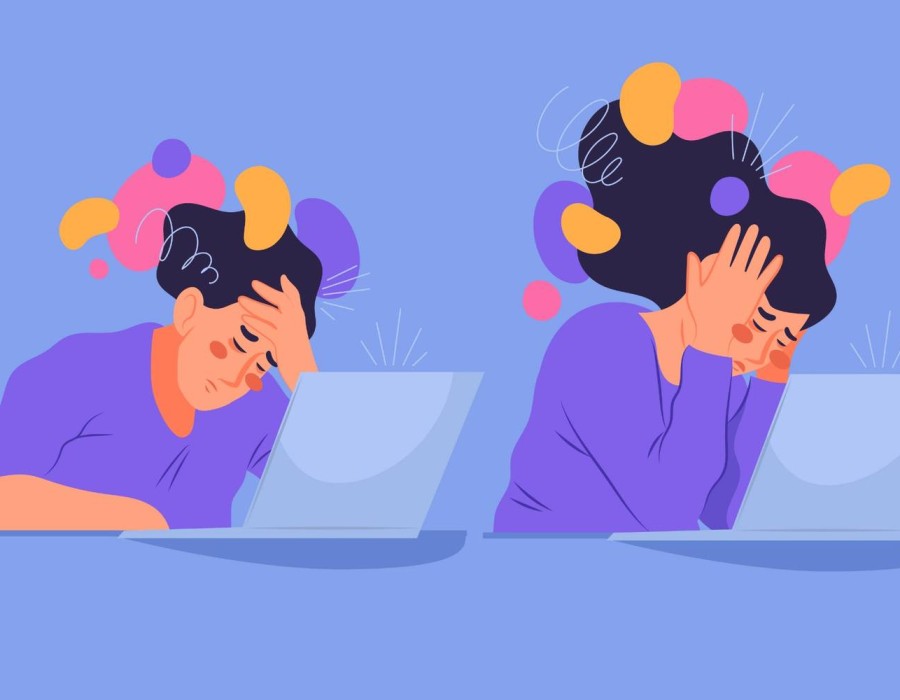Key Takeaways
- Emotional fatigue in teenagers stems from a mix of developmental, social, and cultural factors.
- Communication, balanced routines, and mental health tools for schools can make a difference.
- Addressing emotional fatigue early can help avoid long-term impacts on a teen’s mental health and academic performance.
Emotional fatigue is an increasingly prevalent issue among teenagers today, and it's a challenge that can no longer be ignored. Teenagers today are facing more stress than ever before.
Between the pressure to perform well in school, navigate changing friendships, and deal with the constant presence of social media, many young people are feeling emotionally drained.
This exhaustion, known as emotional fatigue, doesn’t just make growing up harder—it can affect a teenager’s mental health if it's not addressed.
In this article, we’ll take a closer look at what emotional fatigue is, why teens are especially at risk, and how parents, teachers, and families can offer the support they need. By understanding these struggles, we can help our teens build resilience and create a healthier environment for their well-being.
Whether you're a parent, teacher, or someone invested in supporting family mental health, understanding this issue is key to making a difference.
What Is Emotional Fatigue?
Emotional fatigue is a state of feeling emotionally drained, often caused by chronic stress or overwhelming emotional demands. For teenagers, this can manifest as a constant feeling of being "on edge" or unable to cope with everyday tasks.
Unlike regular tiredness, emotional fatigue isn’t solved by a good night's sleep. It stems from mental and emotional overload and can lead to lethargy, irritability, and a sense of hopelessness.
It’s important to differentiate emotional fatigue from other conditions like depression or burnout. While these may overlap, emotional fatigue often has more to do with the cumulative effect of stress rather than a singular mental health condition.
Why Are Teenagers Susceptible to Emotional Fatigue?
Teenagers are at a unique stage of life, making them particularly vulnerable to emotional fatigue. Now, let’s take a look at some of the factors that increase the risk for emotional exhaustion in teenagers.
1. Developmental Changes
- Hormonal Shifts: Puberty causes fluctuations in hormones that impact mood and emotional regulation. This makes it harder for teens to process stress effectively.
- Brain Development: The prefrontal cortex, responsible for decision-making and emotional control, is still developing. This means teens may struggle with coping mechanisms.
2. External Pressures
- Academic Demands: From preparing for exams to meeting deadlines, the constant pressure to perform can take a toll on youth mental health.
- Social Media: Platforms like Instagram and TikTok often create an endless cycle of comparison and validation-seeking, leading to feelings of inadequacy.
- Family Expectations: High parental expectations can exacerbate the fear of failure, causing teens to feel overwhelmed.
3. Internal Struggles
- Identity Formation: Adolescents are figuring out who they are, which can be emotionally taxing.
- Perfectionism: Many teens set unrealistically high standards for themselves, increasing the likelihood of emotional exhaustion.
Signs and Symptoms of Emotional Fatigue in Teenagers
Identifying emotional fatigue early is crucial. Here’s what to look for:
Behavioral Signs
- Avoiding responsibilities, such as homework or chores.
- Withdrawal from activities they once enjoyed, like sports or social events.
Emotional Signs
- Persistent irritability or mood swings.
- A sense of hopelessness or lack of motivation.
Physical Signs
- Unexplained fatigue or bodily aches.
- Teenagers may experience disruptions in their sleep, such as difficulty falling asleep or sleeping excessively.
Consequences of Emotional Fatigue
Failing to address emotional fatigue can lead to serious consequences for youth mental health:
Short-Term Impacts
- Decline in academic performance.
- Increased isolation, which can affect friendships and family relationships.
Long-Term Risks
- Higher chances of developing mental health conditions like anxiety or depression.
- Difficulty building emotional resilience, leading to challenges in adulthood.
How Parents and Educators Can Help
Supporting teenagers with emotional fatigue doesn’t have to be complicated. Here’s how parents and educators can step in:
1. Build a Supportive Environment
- Encourage open communication. You can try asking open-ended questions like, "What challenges have you been facing recently?"
- It's important to create a supportive, non-judgmental environment where teens feel comfortable sharing their emotions.
2. Use Stress-Management Techniques
- Introduce mindfulness activities like deep breathing or journaling.
- Suggest creative outlets such as drawing or music to help process emotions.
3. Promote Rest and Balance
- Prioritize downtime. Be mindful not to overload their schedules with too many activities or commitments.
- Emphasize the importance of sleep by setting a regular bedtime routine.
4. Incorporate Mental Health Tools for Schools
- Work with schools to implement programs that teach stress management and emotional literacy.
- Advocate for schools to have trained mental health professionals available to support students.
Lifestyle Factors That Influence Emotional Fatigue
1. Nutrition: A well-balanced diet is crucial for emotional well-being. Encourage meals rich in whole grains, fruits, and proteins while minimizing sugary and processed foods that can lead to mood swings.
2. Exercise: Physical activity releases endorphins, which naturally improve mood. Even a daily 20-minute walk can make a big difference.
3. Sleep Hygiene: Sleep directly affects a teenager’s ability to handle stress. Encourage practices like limiting screen time before bed and maintaining a consistent sleep schedule.
The Role of Societal Changes
Social Media and Comparison Culture
Social media often creates unrealistic standards for appearance and success, leading to emotional fatigue. Encourage teens to step back from social media occasionally and focus on strengthening their real-world relationships.
Cultural and Academic Pressures
Societal expectations around academic and social success can exacerbate emotional fatigue. Advocate for balanced expectations and emphasize effort over perfection.
Conclusion
Emotional fatigue in teenagers is a growing concern, but with the right approach, it’s manageable. By understanding its causes, recognizing the signs, and providing support, parents and educators can play a key role in improving youth mental health.
Open communication, balanced routines, and accessible resources like mental health tools for schools are vital for helping teenagers navigate this challenging phase of life. With empathy and proactive steps, we can ensure our teenagers grow up feeling supported, not overwhelmed.






Comments